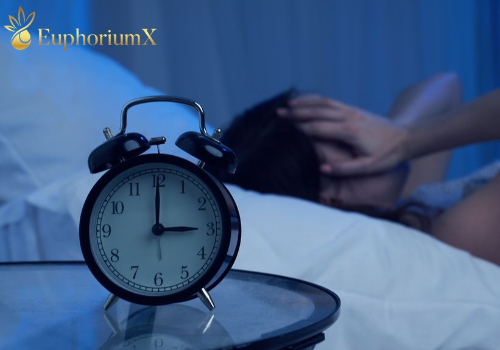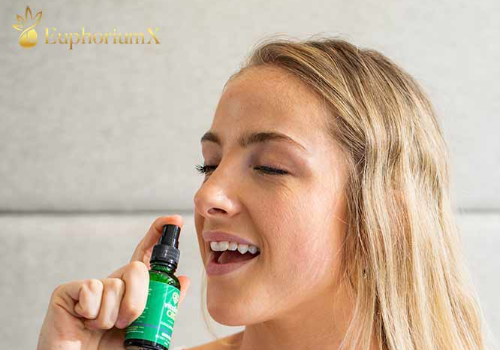


Do you have trouble sleeping at night? Millions of people suffer from insomnia, and traditional treatments like prescription medications often come with a slew of side effects. If you're looking for an alternative treatment, CBD oil may be the answer. CBD oil has been shown to improve sleep in both humans and animals, and there are several ways to take it. This article will explore the research on CBD oil and sleep and discuss how to choose the best CBD oil for insomnia.
CBD oil is a natural, plant-based product made from the cannabis plant. Unlike THC, CBD does not produce any psychoactive effects. Instead, it has been shown to have a range of health benefits, including relief from pain, anxiety, and depression.
US Food and Drug Administration (FDA) or UK's Medicines and Healthcare products Regulatory Agency (MHRA) have not approved CBD oil as a drug for the treatment of insomnia. The FDA has only approved one CBD-based drug 1, Epidiolex, to treat two rare forms of childhood epilepsy. However, preliminary research on CBD oil and sleep suggests that it may be a safe and effective treatment for insomnia. The World Health Organization (WHO) considers CBD a generally safe 2 compound with no major adverse side effects.
Every year, 60 million Americans 3 suffer from insomnia. In the United Kingdom, the latest data shows that 36% of adults report difficulty getting to sleep or staying asleep at least twice a week. Insomnia is a condition that causes difficulty falling and staying asleep. It can lead to fatigue, irritability, and problems with concentration and memory. According to Mayo Clinici 4, mental health disorders, such as anxiety, post-traumatic stress disorder (PTSD), depression, medication, chronic pain, caffeine, and environmental factors, such as loud noises, are some of the leading causes of insomnia.
When it comes to the benefits of CBD for insomnia, research is based on how it interacts with the endocannabinoid system (ECS). ESC is a network of receptors that helps regulate things like mood, appetite, and pain. CBD oil activates receptors in the ECS, which can help improve sleep.
A quick online search for "CBD cured my insomnia" will reveal many personal testimonials from people who have used CBD oil for sleep. While these stories are anecdotal and not scientific evidence, they are backed by a growing body of research on CBD and sleep.
In 2017, three scholars at the University of Pennsylvania wrote a comprehensive paper 5, reviewing the literature on the potential use of CBD oil to treat insomnia. The authors found that "preliminary research into cannabis and insomnia suggests that cannabidiol (CBD) may have therapeutic potential for the treatment of insomnia."
"Research examining the impact of whole plant cannabis on sleep has yielded mixed findings, with some work showing that cannabis use is associated with a decrease in sleep onset latency and wake after sleep onset, while other work has not yielded these effects but instead noted an increase in slow wave sleep [7, 8] and a decrease in [Rapid eye movement] REM. These mixed results are likely due to the heterogeneous nature of whole plant cannabis," they added.
More recent studies on the potential benefits of CBD for insomnia have shown greater promise. A 2021 research 6 looked at 387 current or past-CBD users and asked them to answer a 20-question survey online. More than 70% of the respondents said taking CBD made them "sleep better," "sleep deeper," or "wake up less."
"The most significant findings were that many CBD users reported that CBD could improve sleep problems, stress, and anxiety and be used for general health and wellbeing," the authors wrote. Asked how CBD oil made them feel, the majority of users chose "I feel more calm" or "I have decreased pain" as the main benefit of taking CBD oil.
Last year, eight scholars 7 from various Australian universities published the results of a randomized, double-blind, placebo-controlled study on the effects of CBD oil on sleep. Double-blind means that neither the participants nor the researchers knew who was taking the CBD oil and who was taking the placebo. Twenty-three participants were given either sublingual cannabinoid extract (ZTL-101) or a placebo before going to bed for two weeks.
The researchers found that %81 of those taking ZTL-101 reported "Improvement in sleep quality" as the reason for correctly guessing they were taking the cannabinoid extract. "When taking the placebo," the authors wrote, "18 of 23 participants (78%) thought they were receiving placebo. Sixteen noted "lack of improvement in sleep quality" as the reason for their guess that they were receiving placebo."
"Two weeks of nightly sublingual administration of a cannabinoid extract (ZTL-101) is well tolerated and improves insomnia symptoms and sleep quality in individuals with chronic insomnia symptoms," the study concluded.
All the studies recommend further research on the effects of CBD oil on sleep.
So, is CBD oil good for insomnia? The short answer seems to be yes. CBD oil has been shown to help people fall asleep faster, sleep deeper, and wake up less often during the night. It also helps reduce anxiety and pain, which can interfere with sleep. More research is needed, but the early results on the benefits of CBD for insomnia are promising.
CBD oil can be taken in many ways, including capsules, tinctures, topical creams, and vapes. The best method for you will depend on your preferences and needs. If you have trouble sleeping, it is best to take CBD oil around an hour before bedtime. This gives the body time to metabolize the CBD to be effective in promoting sleep.
To ensure getting the best CBD oil for insomnia, you must either do your research on the right brands or buy from major reputable retailers such as EuphoriumX. Regardless of the brand, look for a CBD oil that is organic, has no THC, and is made from high-quality ingredients. Doing so will ensure that you are getting a product that is effective and safe to use.
If you're new to taking CBD oil, start with a low dose and increase gradually until you find the dosage that works for you. It's also important to remember that everyone's body reacts differently to CBD, so what works for one person may not work for another. Don't take CBD oil if you're pregnant or breastfeeding. You should also talk to your doctor before taking CBD oil if you have any medical conditions or are taking any medications, as CBD oil may interact with them.



